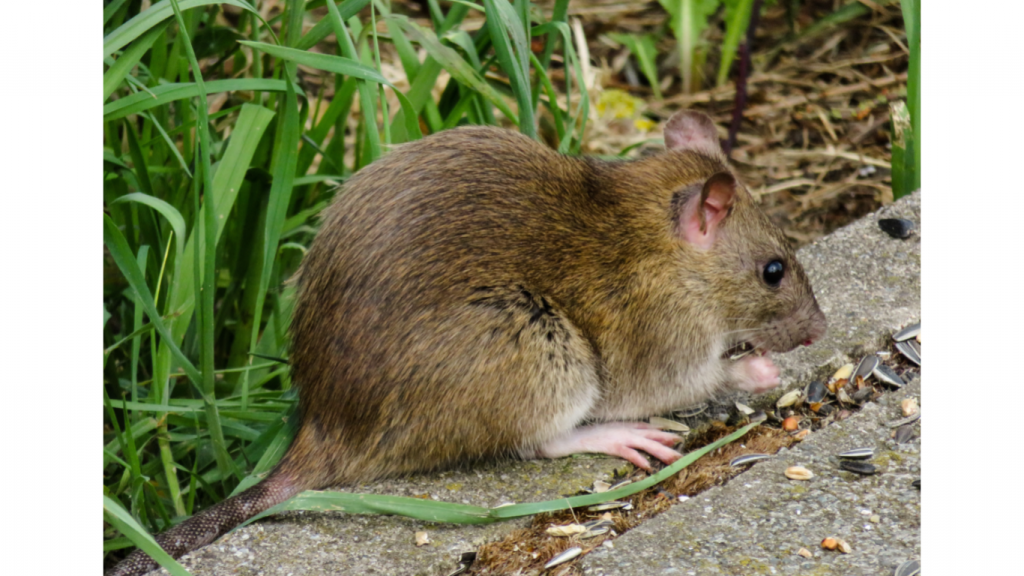Fly Pest Control Services London
Call us for your Pest Control needs on 0208 914 8285 or Contact us here
General
It’s estimated that there are about 17 quadrillion flies in the world, a number that is far too taxing to compute. Within this vast number are some that can cause us problems from time to time.
Flies are well known for spreading diseases which pose health risks to ourselves and farmers livestock. If a fly infestation is left untreated then its numbers can increase rapidly which may result in ill health effects. If this is the case then it may result in the temporary closure of a business. We always advise to take immediate action and recommend calling pest control professionals to eradicate any infestations swiftly.
FLY CONTROL FOR YOUR BUSINESS
Flies in the business place can not only have a serious effect on people’s health, but can also hurt a company’s reputation and good name.
Fly control is even more prevalent in the food and catering sector to prevent food contamination and the spread of diseases. Our technicians are trained and very experienced on knowing how to treat a fly infestation and then putting in place measures to control and prevent future problems. Once control measures have been put in place, our environmental health & safety advisors will carry out regular checks to ensure hygiene standards are being met.
Our food industry clients to date range from local takeaways to Michelin star establishments.
SELF HELP
- Blow Fly – Green and Blue bottle Fly
House Fly
Cluster Fly
Fruit Fly
Mosquito
Scuttle Fly
Fungus Gnat

Drain Fly
As the name suggests they are coming from the drains or stagnant water where the breeding ground will be.
Drain flies are small flies, about 1/8th inch. They are usually black, but may be brown. The key identifying trait for this fly is the unique pattern of veins in its wings.
Drain Flies are also called moth flies, sewer flies or filter flies. Their bodies and wings are covered with numerous hairs. If crushed they leave a powdery smudge. The flies are commonly found around drains, but they should not be confused with the Fruit fly, Phorid fly, or Sphaerocierid fly which also infest drains.
Blow Fly
Blow flies, including blue bottle and green bottle flies, have shiny metallic looking bodies and are larger than houseflies and are associated with rotten meat and decomposing animal waste where their eggs are laid and the larvae (maggots) feed before pupating and emerging as adult flies.
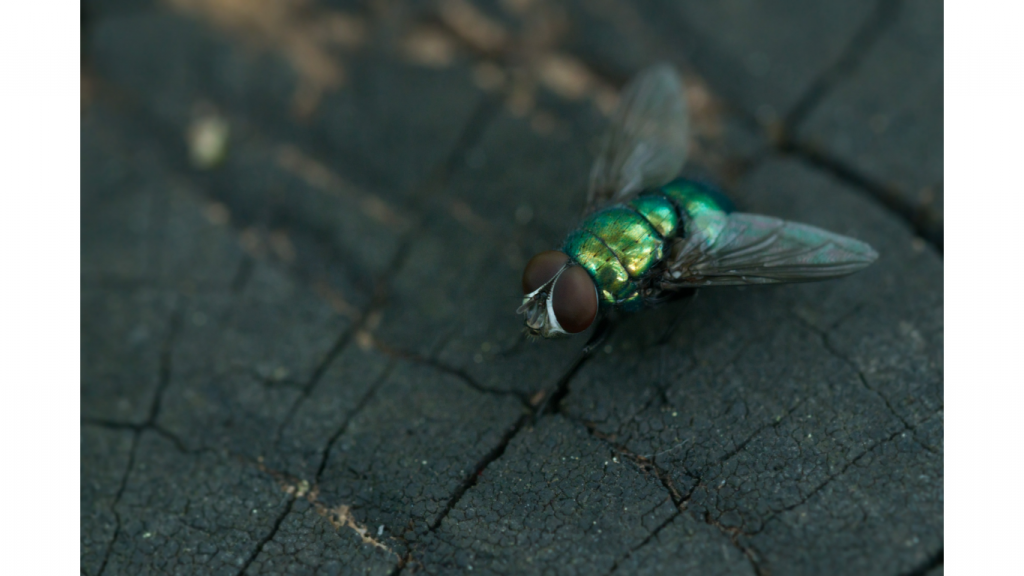
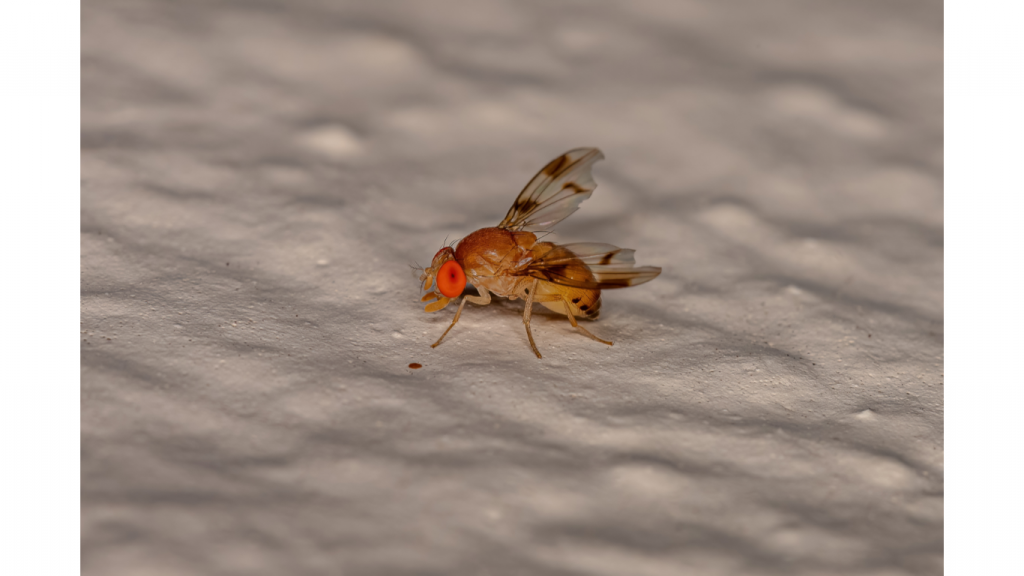
Fruit Flies
These are small flies or gnats in your kitchen, with visible red eyes. Fruit flies can be a problem year round, but are especially common during late summer/fall because they are attracted to ripened or fermenting fruits and vegetables.
Tomatoes, melons, squash, grapes and other perishable items brought in from the garden are often the cause of an infestation developing indoors. Fruit flies are also attracted to rotting bananas, potatoes, onions and other non-refrigerated produce.
Scuttle Fly
Appearance: Can be mistaken for fruit flies. 3-4mm, pale brown to black in colour. Often have a humped appearance.
Life cycle: Develop to maturity on average in 2 weeks, can take up to 42 days
Behaviour, diet & habits: This type of fly is attracted to any wet, damp or decaying matter, such as foul water, sewage, also rotting food. They prefer to run rather than fly, hence their common name of scuttle fly. If they are forced to take to the wing they often land soon afterwards.
Control: Removal of the breeding ground is vital. This can be a blocked or broken drain, leaky pipes (in bathrooms etc), or rotting food source.
Unfortunately the problem is likely to persist even with insecticide treatment if the source isn’t located and removed. This may require you to contact a drain specialist for help locating the source.
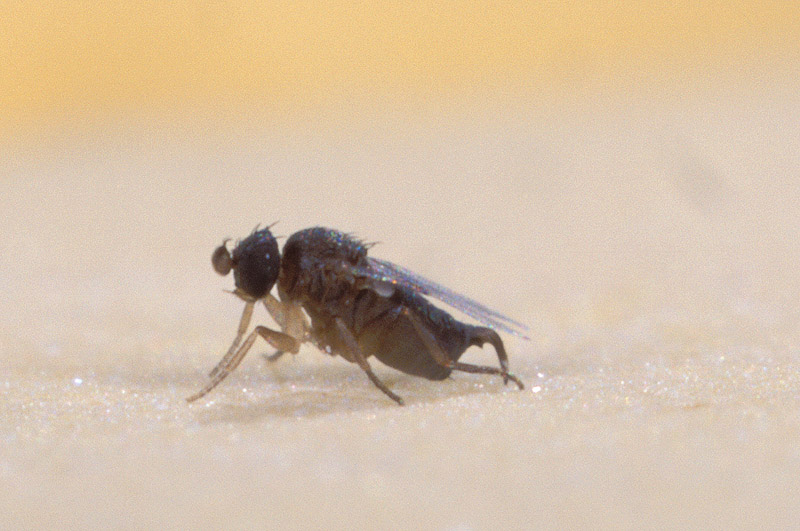
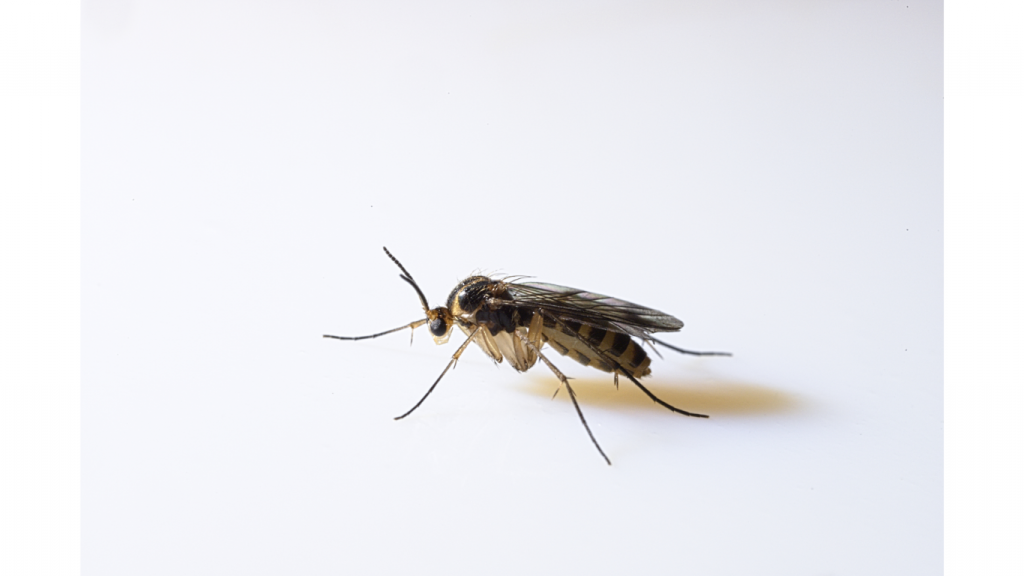
Fungus Gnat
- Appearance: 4mm, black with a distinctive pointed abdomen.
- Life cycle: Develop to maturity in 4 weeks on average.
- Behaviour, diet & habits: In domestic environments and offices they are usually associated with stagnant water in plant pots and displays. This can happen when the plants are overwatered. The larvae feed on any decomposing organic plant material. They are air-born most of their adult life, they fly slowly and are often attracted to people exhaling breath.
- Control: In an external area or greenhouse they can be very difficult to control. In an office or domestic environment control is usually achieved by removing the plants where they are breeding (sometimes just not watering the plants as much can result in control). If there are no plants in the vicinity then they can also be associated with bath and sink overflow and stagnant water that may have resulted from leaks. This should be checked by a specialist. An insecticide treatment can help with quick knockdown of the adults; this is particularly useful when the flies are bothering tenants in an office environment. This will only bring temporary relief though; the source needs to be removed too.
CALL US NOW SO WE CAN BEGIN YOUR TREATMENT 0208 914 8285
PLACES OF OPERATION
North West London, West London, SW London, SE London and Kent

